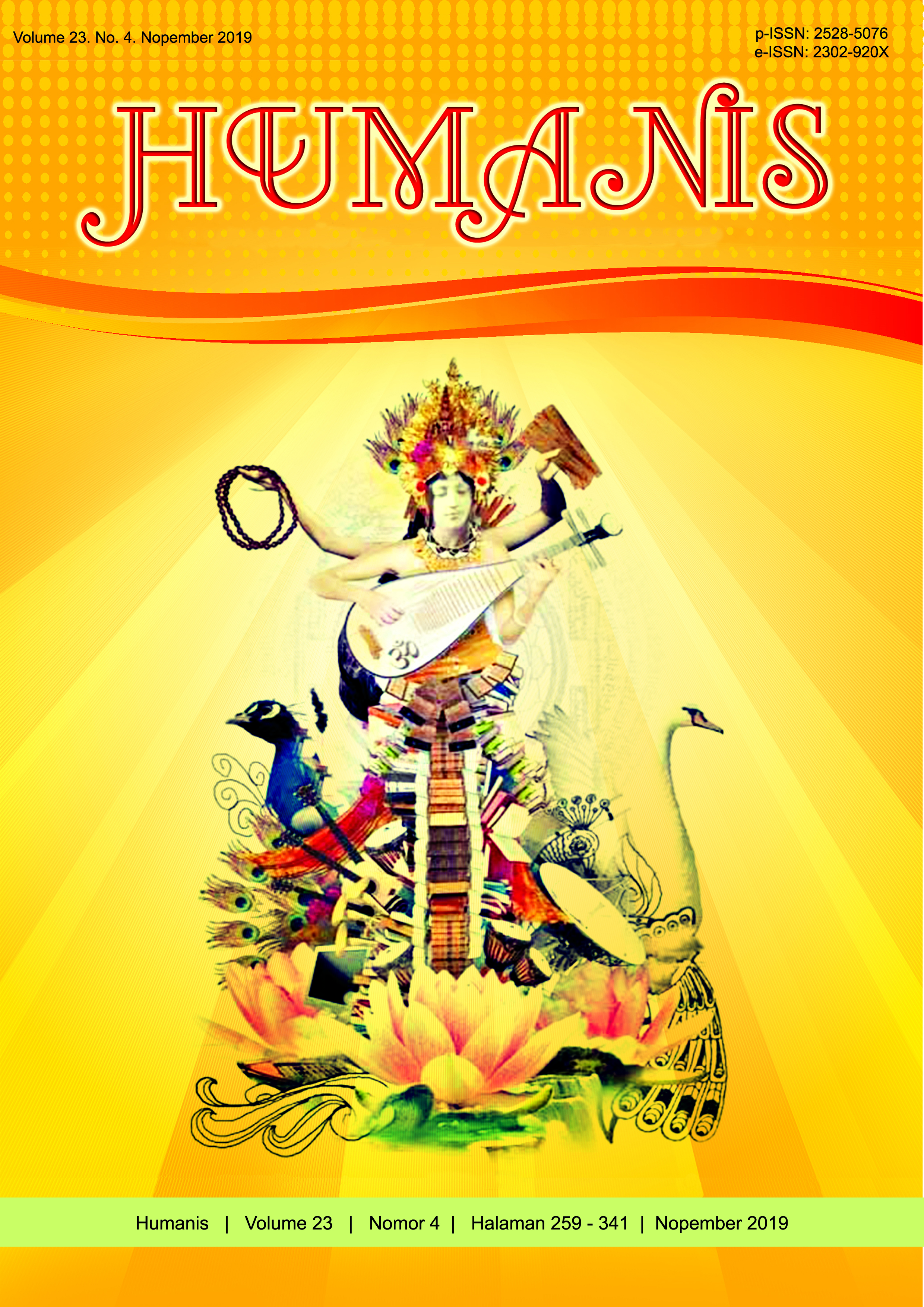Seblang : Sebuah Ritual Tari di Desa Olehsari Kecamatan Glagah Kabupaten Banyuwangi Jawa Timur Tahun 1990-2017
Abstract
This study discussed about the Seblang rituals in the village of Olehsari which tells about the emergence of the Seblang ritual, the process of carrying out the Seblang ritual, and how the effects of the Seblang ritual on the social and cultural conditions of the village of Olehsari were affected. The purpose of this study was to find out in depth about the history and life of Seblang culture from 1990 to 2017 and how the impact of the Seblang ritual on the social and cultural conditions of the village of Olehsari. Moreover, this study had three research questions proposed, the answers of which were sought using the methodology of cultural history from Kuntowijoyo. The method used is also assisted by historical theories from Ida Bagus Sidemen. Based on the data analysis, it was concluded that the appearance of the Seblang ritual originated from a pagebluk that attacked the slopes of Mount Ijen, which resulted many disasters, sick people, and many failed crops. Since humans in ancient times, or traditional humans, believed in the existence of mystical things, the consider pagebluk is caused due to a lack of balance between nature and humans. For this reason, the Seblang ritual exist. It is through this intermediary of the Seblang ritual that the community of Olehsari hopes that the disaster will end in the village of Olehsari.
Downloads
References
Toyo, Hasbullah. (2017). Ritual Tolak Bala Pada Masyarakat Melayu (Kajian Pada Masyarakat Petalangan Kecamatan Pangkalan Kuras Kabupaten Pelalawan). Jurnal Ushuluddin. Vol. 25, No. 1; Januari-Juni, pp 83-100.
Jufri, Muhammad. (2017). Tradisi Ritual Seblang Dalam Perspektif Hukum Islam Di Desa Olehsari Kecamatan Glagah Banyuwangi. Jurnal Lisan Al-Hal. Vol 9, No. 1; Juni, pp 5-24.
Widya, Diatyka. (2010). Tradisi, Ekonomi-Politik, dan Toleransi Yogyakarta. Jurnal Sosiologi. Vol. 15, No. 25; Juli, pp 37-60.
Lies, Indah. (2017). Tradisi Masyarakat Selo dan Pariwisata di Taman Nasional Gunung Merbabu, Boyolali Jawa Tengah. Jurnal SASDAYA, Gadjah Mada Journal of Humanities. Vol. 1, No. 2; Mei, pp 199-208.
Cathrin, Shely. (2017). Tinjauan Filsafat Kebudayaan Terhadap Upacara Adat Bersih-Desa Di Desa Tawun, Kecamatan Kasreman, Kabupaten Ngawi, Jawa Timur. Jurnal Filsafat. Vol. 27, No. 1; Februari, pp 30-64.
Saputra, Heru (2014). Wasiat Leluhur: Respons Orang Using terhadap Sakralitas dan Fungsi Sosial Ritual Seblang. Jurnal Makara Hubs-Asia. 18(1), 53-65. DOI: 10.7454/mssh.v18i1.3461.
Kholil, Ahmad (2010). Seblang Dan Kenduri Masyarakat Desa Olehsari: Relasi Ideal Antara Islam Dan Budaya Jawa Di Banyuwangi. Jurnal El-Harakah. Vol. 12. No. 2, pp 131-153.
Ahmad, Sutarto. (2003). Etnografi masyarakat Using. Laporan Penelitian, Universitas Negeri Jember.
Kuntowijoyo. (2003). Metodologi Sejarah: Edisi Kedua. Yogyakarta: Tiara Wacana.
Margana, Sri. (2012). Ujung Timur Jawa 1763-1813: Perebutan Hegemoni Blambangan. Yogyakarta: Pustaka Ifada.
Sjamsudin, Helius. (2007). Metodologi Sejarah. Yogyakarta: Ombak.
Munawarroh, Avina. (2016). Upacara Adat Bakaua. Thesis, Universitas Negeri Andalas.
Betty, Andrew. (1996). Syncretism in the Javanese Slametan. Jurnal Anthropological Institute. Vol. 2.
Subagyo, H. (2003). Bentuk Dan Makna Simbolik Tari Seblang Di Desa Olehsari Kabupaten Banyuwangi Jawa Timur. Jurnal Greget. Vol. 2. No. 2, pp 27-45.


















